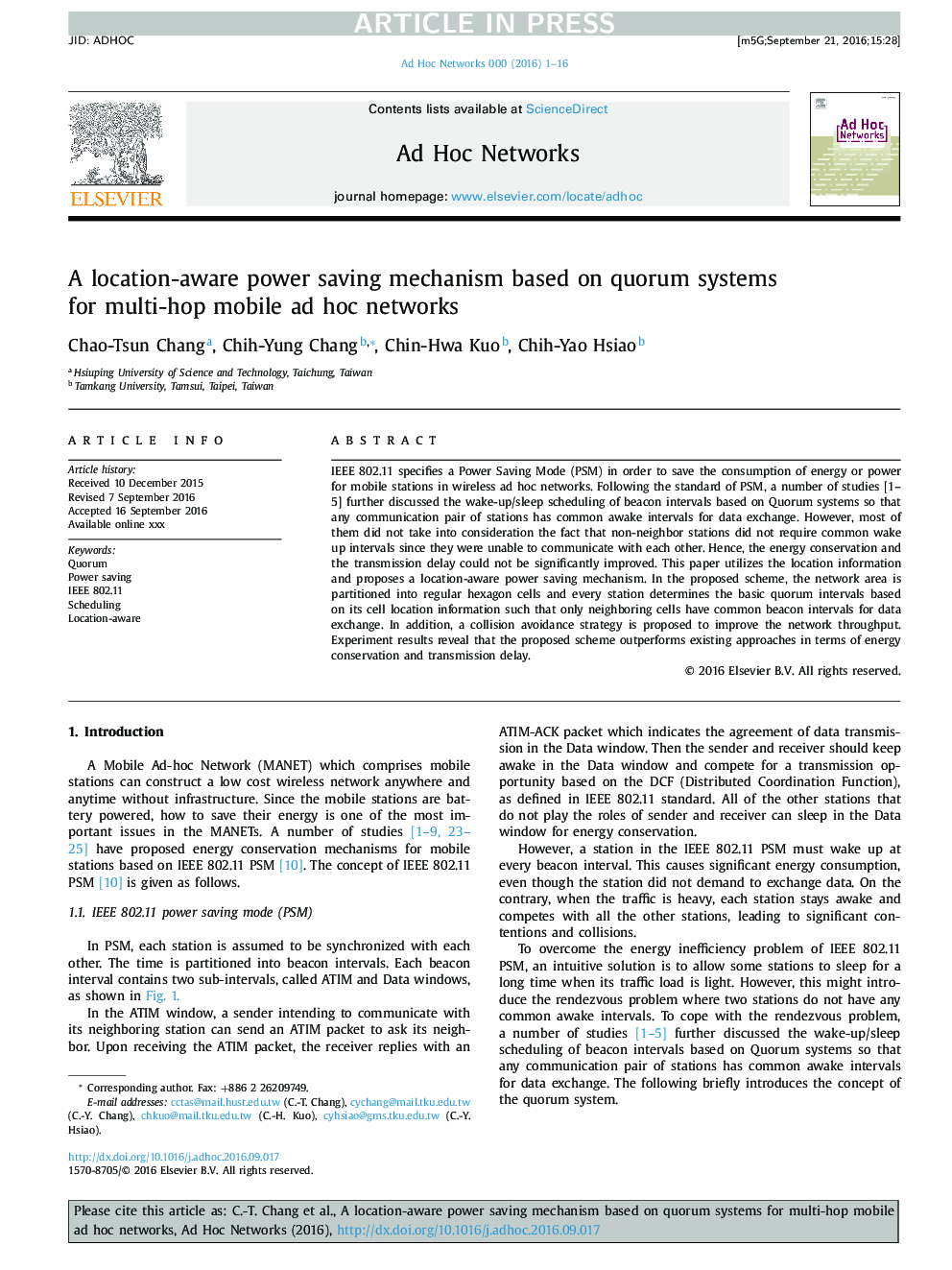| Article ID | Journal | Published Year | Pages | File Type |
|---|---|---|---|---|
| 4953624 | Ad Hoc Networks | 2016 | 16 Pages |
Abstract
IEEE 802.11 specifies a Power Saving Mode (PSM) in order to save the consumption of energy or power for mobile stations in wireless ad hoc networks. Following the standard of PSM, a number of studies [1-5] further discussed the wake-up/sleep scheduling of beacon intervals based on Quorum systems so that any communication pair of stations has common awake intervals for data exchange. However, most of them did not take into consideration the fact that non-neighbor stations did not require common wake up intervals since they were unable to communicate with each other. Hence, the energy conservation and the transmission delay could not be significantly improved. This paper utilizes the location information and proposes a location-aware power saving mechanism. In the proposed scheme, the network area is partitioned into regular hexagon cells and every station determines the basic quorum intervals based on its cell location information such that only neighboring cells have common beacon intervals for data exchange. In addition, a collision avoidance strategy is proposed to improve the network throughput. Experiment results reveal that the proposed scheme outperforms existing approaches in terms of energy conservation and transmission delay.
Related Topics
Physical Sciences and Engineering
Computer Science
Computer Networks and Communications
Authors
Chao-Tsun Chang, Chih-Yung Chang, Chin-Hwa Kuo, Chih-Yao Hsiao,
